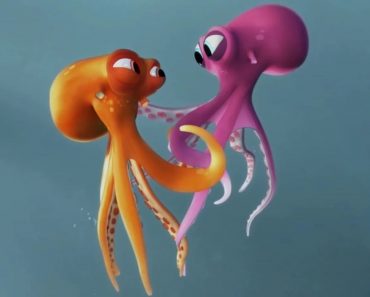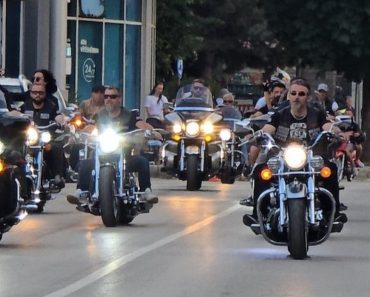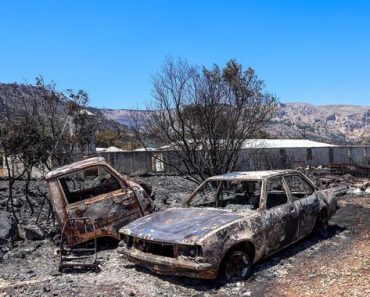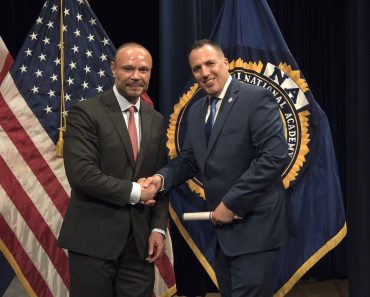How do you do a flying horse on stage? Answer: You don’t. They cut the horse. But while Hercules’ friend Pegasus may be gone, in almost every other respect, Disney’s latest stage adaptation, “Hercules,” cleaves to its 1997 animated movie hit. But almost 30 years on, sensibilities and the story’s tone have changed. In place of actual dramatic tension, the film relied on fast-cut, explosive animation and some character zip. Softening those characters for present-day sensibilities banishes what little edge there was and leaves everything feeling over-bright in a restless and relentless production. At 110 minutes (plus intermission), it’s longer than the 93-minute movie. And feels it.
“Hercules” was a moderate Mouse House success, though something of a disappointment compared with its doubly more profitable immediate predecessor “Pocahontas.” What connected the two and keeps it alive in the memories of those who saw it (or stream it now on Disney+) was its fun, ’90s feminist sensibility. In “Hercules,” on screen and stage, that’s embodied by the Muses, a five-strong Greek chorus of smart-mouthed, lung-busting Black women.
A sound design with more clarity on the vocals than on the brassy 13-piece band band would have helped the quintet, but none of them is low on sass or killer melismas and their knowingness is the predominant attitude of director Casey Nicholaw’s (“Aladdin”) production. Laced throughout as commentators, their joyful energy kickstarts everything and they land every moment, striking poses and rising up through the floor of Dane Laffrey’s set to the audience’s delight. But the thought occurs that it takes more than hydraulics to lift a show.
As if aware that engaging plot is not the story’s strongest suit, Nicholaw keeps his foot on the accelerator throughout, making sure nothing and no one dawdles as the production hurtles from one incident to the next. He’s helped no end by Laffrey’s four towering pairs of white Greek pillars moving near non-stop into different configurations for the ever-changing locations. Aesthetically, it’s poles apart from Broadway’s “The Great Gatsby,” but like that musical, the visuals here – somewhere between dazzling and downright gaudy – are dictated by the dominating video projections. One minute they’re showing literal locations; the next, they’re abstract explosions of colour and texture.
Keeping everything fast-moving diverts audiences from the thinness of the material but has a downside in that nothing has time to breathe. Even when characters get a moment of self-realization, Robert Horn and Kwame Kwei-Armah’s book, including sizeable chunks of the screenplay, replaces drama with platitudes or dialogue gags. Hercules (Luke Brady) pitches up and says to the first man he sees, “I’m looking for a man.” “Aren’t we all?” comes the smiling reply. That’s not Disney embracing gay relationships but simply yet another throwaway nod in a script that mines every possible Greek trope for one-off jokes. No one wants a family musical to be a genuine Greek tragedy but a genuinely engaging atmosphere and consistency wouldn’t have gone amiss.
The strongest scenes belong to those featuring the dashingly droll antagonist Hades. Vulpine, frock-coated and led by his coiffured mane of white hair, a deliciously enjoyable Stephen Carlile is like Alan Rickman on steroids, with added decibels. Like every actor on the massive Theatre Royal Drury Lane stage, he doesn’t speak, he shouts. Happily, Carlile’s characterization, which picks up where James Woods’ original left off, is strong enough to sustain that level of performance.
Others fare less well. The original film’s henchmen Pain and Panic are now feckless putzes Bob and Charles who look like escapees from “The Lord of the Rings,” and their effort feels strident because the script gives them so little. Similarly, Trevor Dion Nicholas brings industrial quantities of bounce to Phil, Hercules’ trainer. But banishing the amusingly furious grumpiness of the character as written for and played by Danny DeVito flattens the friendship between him and Hercules because beyond a little early exasperation, the relationship – and by extension, the whole show – has no texture.
Alan Menken and David Zippel have increased the song catalogue by some margin – there are 25 listed musical numbers. That accounts for the increased running time since it takes much longer to sing something than to say it. But the new numbers feel merely efficient because they’re so generic: “You will always be safe in my arms/ In this world full of dangers and harms” is way below David Zippel’s best lyric work. And while Menken’s music is efficient, that’s more to do with Michael Kosarin’s arrangements sung by a cast with real vocal chops.
But all character potential is flattened by writing and direction that allows for just one characteristic apiece. That means, as Hercules, buoyant Brady is asked to present little beyond a sweet-natured, naive hunk celebrated for his gym membership and gleaming dentistry. Happily, Brady is blessed with a well-produced high tenor voice that winningly sails over the band.
Curiously, given that Casey began as a choreographer, the lackluster dance is energetic but inexpressive. The hardworking cast notwithstanding, even a tap number doesn’t raise the temperature. But then in a show without tension and release, maybe expecting galloping excitement is foolish.
Staging a beloved property means Disney knows there’s an audience ready to applaud having memories recreated live. But having a super-saturated production insist upon you having a good time all the time proves less entertaining, more enervating.







